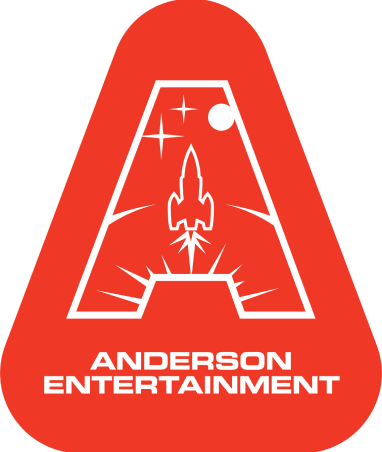A History of Gerry Anderson Toys - Part 2

Missed part one? Read it here.
Anderson’s next series moved the action from outer space to the ocean depths, as Troy Tempest took charge of the super-sub Stingray and encountered undersea aliens both hostile and benign. Today Stingray often finds itself standing alongside Thunderbirds and Captain Scarlet as one of the jewels in the Gerry Anderson crown, but the amount of merchandise released back in the 1960s was not much more than had been produced for Fireball XL5, and most of the models and toys produced concentrated more on the vehicles than any of the characters.
 Lakeside's friction powered Stingray Terror Fish toy.
Various manufacturers (including Fairylite, Plaston and Lonestar) all produced models of Stingray, but with varying degrees of accuracy. Lincoln came closest to capturing the look of the original with their 1964 radio-controlled model which featured lights and sound effects. Again Airfix produced a model kit of the series’ star craft for a Lyons Maid mail-in offer, and today that kit is just as hard to find as the previous Fireball XL5 one. Perhaps most charming of all was an inflatable Stingray available through a Golden Wonder promotion, allowing would-be aquanauts the chance to patrol their local beaches or swimming pools on the lookout for Terror Fish! Speaking of Terror Fish, Lakeside produced a beautiful steel friction-powered model of the Aquaphibian vehicle complete with moving eyes mouth and tail. Despite the craft now sporting black irises that make it look adorable rather than threatening this is significant as being the only toy released in the 1960s based on this particular vehicle.
When it came to toys based on the Stingray characters themselves Pelham Puppets seem to have been left out this time, and instead both Mettoy and Lakeside produced small sets of handpuppets. For those who wanted to be a real-life Troy Tempest there was also a Stingray-shaped water pistol produced by Fairylite, and a metal capgun from Lonestar.
It was Gerry Anderson’s next series that would ultimately define his career, as well as firmly establish his television shows as a merchandising force to be reckoned with. Thunderbirds arrived on British television in September 1965, and the weekly adventures of International Rescue soon became a firm favourite with children and adults alike.
Lakeside's friction powered Stingray Terror Fish toy.
Various manufacturers (including Fairylite, Plaston and Lonestar) all produced models of Stingray, but with varying degrees of accuracy. Lincoln came closest to capturing the look of the original with their 1964 radio-controlled model which featured lights and sound effects. Again Airfix produced a model kit of the series’ star craft for a Lyons Maid mail-in offer, and today that kit is just as hard to find as the previous Fireball XL5 one. Perhaps most charming of all was an inflatable Stingray available through a Golden Wonder promotion, allowing would-be aquanauts the chance to patrol their local beaches or swimming pools on the lookout for Terror Fish! Speaking of Terror Fish, Lakeside produced a beautiful steel friction-powered model of the Aquaphibian vehicle complete with moving eyes mouth and tail. Despite the craft now sporting black irises that make it look adorable rather than threatening this is significant as being the only toy released in the 1960s based on this particular vehicle.
When it came to toys based on the Stingray characters themselves Pelham Puppets seem to have been left out this time, and instead both Mettoy and Lakeside produced small sets of handpuppets. For those who wanted to be a real-life Troy Tempest there was also a Stingray-shaped water pistol produced by Fairylite, and a metal capgun from Lonestar.
It was Gerry Anderson’s next series that would ultimately define his career, as well as firmly establish his television shows as a merchandising force to be reckoned with. Thunderbirds arrived on British television in September 1965, and the weekly adventures of International Rescue soon became a firm favourite with children and adults alike.
 Thunderbird 2 from Dinky Toys.
As well as being a smash hit on television Thunderbirds quickly became a merchandising phenomenon. It would be almost impossible to list all of the toys here but among the most successful and best remembered were the die-cast models from Dinky Toys. The first of these was Lady Penelope’s famous pink Rolls Royce FAB 1, featuring firing missiles in the front and harpoons in the back plus models of Penelope and Parker, but this toy was soon followed by something even more special. Dinky’s Thunderbird 2 (perhaps the closest any Gerry Anderson toy had come to resembling its screen counterpart up to this point) featured pop-down legs and a detachable central pod which opened to reveal (an often easily-lost) Thunderbird 4 inside. This toy became one of the most iconic Anderson toys of all time, so much so that it was still being produced well into the next decade (sometimes appearing in a shade of metallic blue rather than its traditional green) and mint-condition examples command a high price today.
In conjunction with Rosenthal Century 21 produced larger-scale plastic versions of the five Thunderbirds craft plus FAB 1, and several of these were available in both friction-powered and battery-powered versions. Thunderbird 4 was even capable of moving in water for those inevitable bath-time rescues. In perhaps the ultimate example of product placement in the Anderson series (equalled only by Joe 90 being seen to read a copy of the TV21 comic a few years later) the Rosenthal Thunderbirds 1 2 and 3 toys appeared at the start of Give or Take a Million, the final episode of Thunderbirds. Interestingly Thunderbird 5 (seen on the title card at the top of this article) was not included in the group, as it was felt that the model didn’t look anything like the vehicle it was based on!
Thunderbird 2 from Dinky Toys.
As well as being a smash hit on television Thunderbirds quickly became a merchandising phenomenon. It would be almost impossible to list all of the toys here but among the most successful and best remembered were the die-cast models from Dinky Toys. The first of these was Lady Penelope’s famous pink Rolls Royce FAB 1, featuring firing missiles in the front and harpoons in the back plus models of Penelope and Parker, but this toy was soon followed by something even more special. Dinky’s Thunderbird 2 (perhaps the closest any Gerry Anderson toy had come to resembling its screen counterpart up to this point) featured pop-down legs and a detachable central pod which opened to reveal (an often easily-lost) Thunderbird 4 inside. This toy became one of the most iconic Anderson toys of all time, so much so that it was still being produced well into the next decade (sometimes appearing in a shade of metallic blue rather than its traditional green) and mint-condition examples command a high price today.
In conjunction with Rosenthal Century 21 produced larger-scale plastic versions of the five Thunderbirds craft plus FAB 1, and several of these were available in both friction-powered and battery-powered versions. Thunderbird 4 was even capable of moving in water for those inevitable bath-time rescues. In perhaps the ultimate example of product placement in the Anderson series (equalled only by Joe 90 being seen to read a copy of the TV21 comic a few years later) the Rosenthal Thunderbirds 1 2 and 3 toys appeared at the start of Give or Take a Million, the final episode of Thunderbirds. Interestingly Thunderbird 5 (seen on the title card at the top of this article) was not included in the group, as it was felt that the model didn’t look anything like the vehicle it was based on!
 Little Nicky receives an incomplete set of Thunderbirds Rosenthal toys in Give or Take a Million.
It wasn’t only the vehicles that were attractive to merchandisers. Fairylite produced a range of ten dolls based on characters from the series, each one about twelve inches tall featuring fully-jointed bodies and wearing cloth costumes. Figures of this kind were not common in the 1960s, with the result that only a limited number were produced. Today (if you can find them) you can expect each of the Fairylite figures to sell for over £100 each.
A big screen adaptation of Thunderbirds arrived in cinemas in 1966, and a deluxe radio-controlled version of its main guest vehicle the Zero-X was released by Century 21 to tie in with the release. Unfortunately the Thunderbirds are Go! film proved to be both a critical and commercial disappointment, and marked the beginning of the end for Thunderbirds. Despite the show’s unparalleled success and the massive merchandising empire that had been constructed around it, Lew Grade felt that an entirely new series was the way forward and refused to recommission Thunderbirds. The series came to an end just six episodes into the show’s second season.
Undeterred, Anderson got to work on the next series. The result was a show that, if not quite reaching the same heights as Thunderbirds, still came pretty close. Captain Scarlet and the Mysterons first aired in 1967, and the success of Thunderbirds left Century 21 in no doubt that this new series would do equally well both on television and in the nation’s toy stores.
Among the most sought-after Scarlet toys today are the three 10-inch vehicles produced by Century 21; the Spectrum Pursuit Vehicle, Spectrum Patrol Car, and the Angel Interceptor. These replicas came with a variety of action features such as opening doors and firing missiles plus a friction drive motor, but their plastic and polystyrene construction made them rather fragile. As a result those hoping to find these toys in mint condition today can expect to pay at least £300 minimum.
Little Nicky receives an incomplete set of Thunderbirds Rosenthal toys in Give or Take a Million.
It wasn’t only the vehicles that were attractive to merchandisers. Fairylite produced a range of ten dolls based on characters from the series, each one about twelve inches tall featuring fully-jointed bodies and wearing cloth costumes. Figures of this kind were not common in the 1960s, with the result that only a limited number were produced. Today (if you can find them) you can expect each of the Fairylite figures to sell for over £100 each.
A big screen adaptation of Thunderbirds arrived in cinemas in 1966, and a deluxe radio-controlled version of its main guest vehicle the Zero-X was released by Century 21 to tie in with the release. Unfortunately the Thunderbirds are Go! film proved to be both a critical and commercial disappointment, and marked the beginning of the end for Thunderbirds. Despite the show’s unparalleled success and the massive merchandising empire that had been constructed around it, Lew Grade felt that an entirely new series was the way forward and refused to recommission Thunderbirds. The series came to an end just six episodes into the show’s second season.
Undeterred, Anderson got to work on the next series. The result was a show that, if not quite reaching the same heights as Thunderbirds, still came pretty close. Captain Scarlet and the Mysterons first aired in 1967, and the success of Thunderbirds left Century 21 in no doubt that this new series would do equally well both on television and in the nation’s toy stores.
Among the most sought-after Scarlet toys today are the three 10-inch vehicles produced by Century 21; the Spectrum Pursuit Vehicle, Spectrum Patrol Car, and the Angel Interceptor. These replicas came with a variety of action features such as opening doors and firing missiles plus a friction drive motor, but their plastic and polystyrene construction made them rather fragile. As a result those hoping to find these toys in mint condition today can expect to pay at least £300 minimum.
 Advertisement for the Dinky Toys Captain Scarlet range.
Dinky Toys also produced a range of three smaller but sturdier toys to accompany the series; the SPV and the SPC once again, now joined by the Spectrum Maximum Security Vehicle. The latter was an odd choice considering that the MSV only appeared in three episodes of the show (surely the Angel Interceptor would have been more popular?) but the Spectrum Pursuit Vehicle became one of the best-selling Dinky Toys of all time and remained in their catalogue well into the mid-1970s. The Angel Interceptor was eventually spotlighted when Airfix produced a 1/72 scale kit of the model (which has been recently re-released).
Advertisement for the Dinky Toys Captain Scarlet range.
Dinky Toys also produced a range of three smaller but sturdier toys to accompany the series; the SPV and the SPC once again, now joined by the Spectrum Maximum Security Vehicle. The latter was an odd choice considering that the MSV only appeared in three episodes of the show (surely the Angel Interceptor would have been more popular?) but the Spectrum Pursuit Vehicle became one of the best-selling Dinky Toys of all time and remained in their catalogue well into the mid-1970s. The Angel Interceptor was eventually spotlighted when Airfix produced a 1/72 scale kit of the model (which has been recently re-released).
 Captain Scarlet racing cars set from Triang-Rovex.
Tri-ang Rovex seem to have developed a minor obsession for the Spectrum Patrol Car in particular, producing three sets for their Magicar system (a precursor to Scalextrix). Battery-operated and coming with a circuit of track and an extra vehicle to race against, these sets usually fetch upwards of £200 today when in good condition.
On the character front Pedigree produced a 12-inch action figure/doll of Scarlet himself, of a much higher quality than the similar ones Fairylite had produced for Thunderbirds, as well as smaller dolls of Scarlet and Destiny Angel. Moulded onto a wire frame these bendy rubber dolls were generally rather fragile - with overlong spindly limbs and easily-lost accessories!
NEXT TIME; Joe 90, The Secret Service, UFO, Space:1999, & Terrahawks!
Captain Scarlet racing cars set from Triang-Rovex.
Tri-ang Rovex seem to have developed a minor obsession for the Spectrum Patrol Car in particular, producing three sets for their Magicar system (a precursor to Scalextrix). Battery-operated and coming with a circuit of track and an extra vehicle to race against, these sets usually fetch upwards of £200 today when in good condition.
On the character front Pedigree produced a 12-inch action figure/doll of Scarlet himself, of a much higher quality than the similar ones Fairylite had produced for Thunderbirds, as well as smaller dolls of Scarlet and Destiny Angel. Moulded onto a wire frame these bendy rubber dolls were generally rather fragile - with overlong spindly limbs and easily-lost accessories!
NEXT TIME; Joe 90, The Secret Service, UFO, Space:1999, & Terrahawks!
 Lakeside's friction powered Stingray Terror Fish toy.
Lakeside's friction powered Stingray Terror Fish toy. Thunderbird 2 from Dinky Toys.
Thunderbird 2 from Dinky Toys. Little Nicky receives an incomplete set of Thunderbirds Rosenthal toys in Give or Take a Million.
Little Nicky receives an incomplete set of Thunderbirds Rosenthal toys in Give or Take a Million. Advertisement for the Dinky Toys Captain Scarlet range.
Advertisement for the Dinky Toys Captain Scarlet range. Captain Scarlet racing cars set from Triang-Rovex.
Captain Scarlet racing cars set from Triang-Rovex.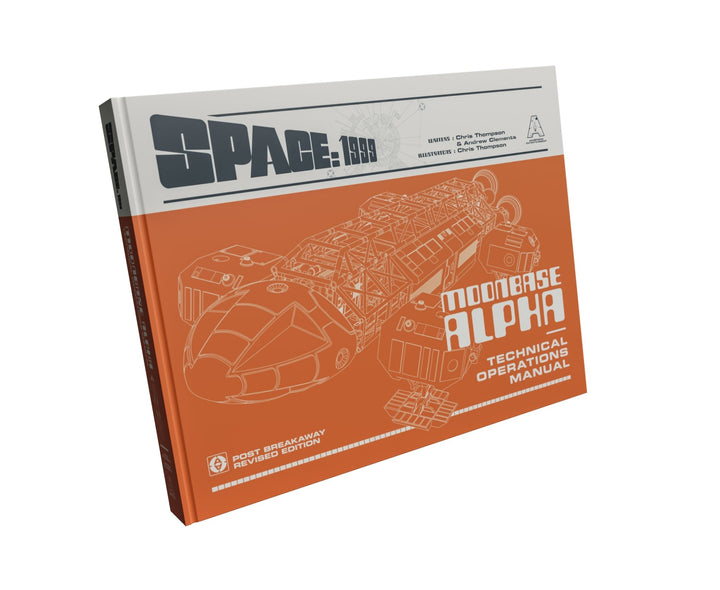
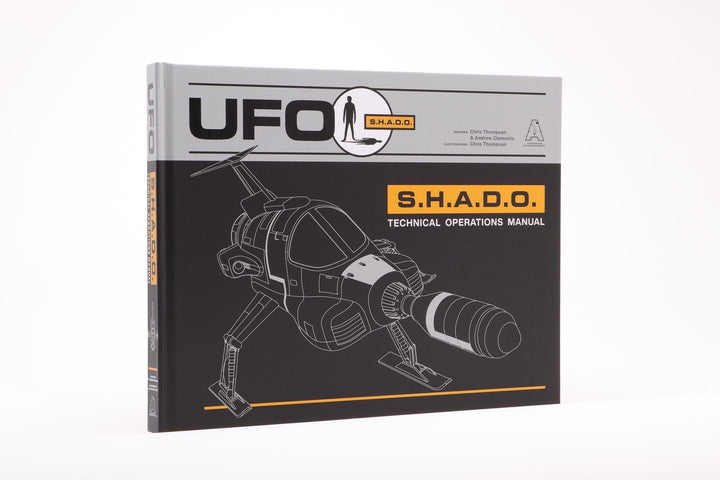
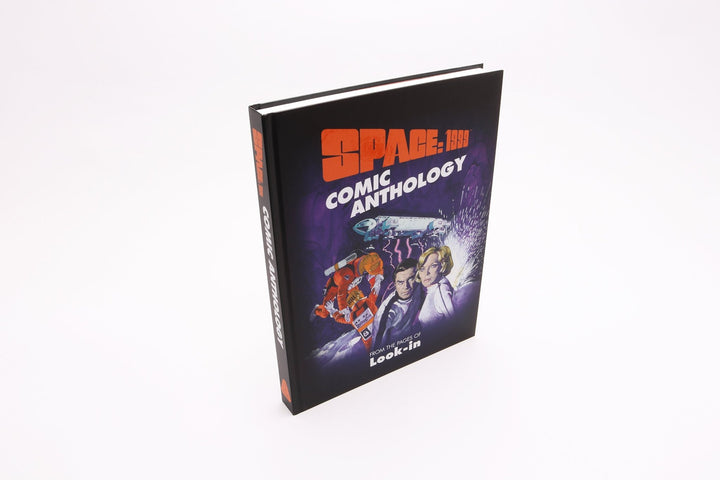
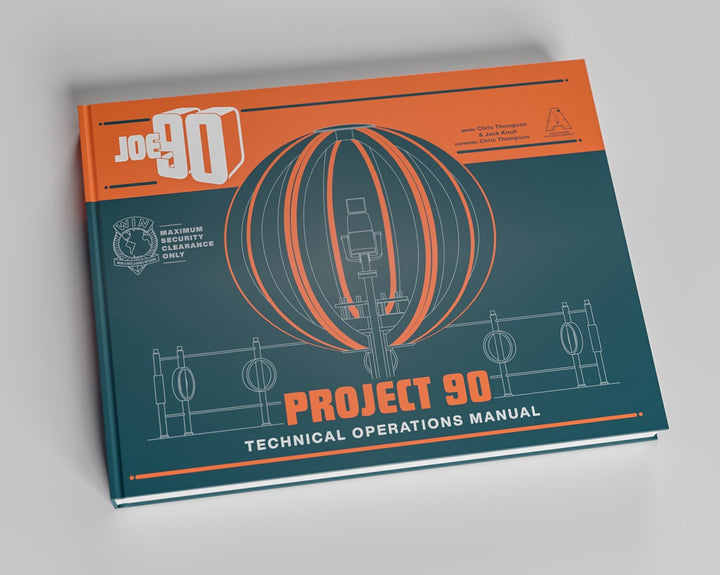
![Thunderbirds Comic Anthology Volume One [HARDCOVER] - The Gerry Anderson Store](http://gerryanderson.com/cdn/shop/files/thunderbirds-comic-anthology-volume-one-hardcover-8030771.jpg?v=1751089031&width=720)
![All Sections Alpha: The Making of Space: 1999 [HARDCOVER] - The Gerry Anderson Store](http://gerryanderson.com/cdn/shop/files/all-sections-alpha-the-making-of-space-1999-hardcover-7498116.png?v=1757766647&width=720)
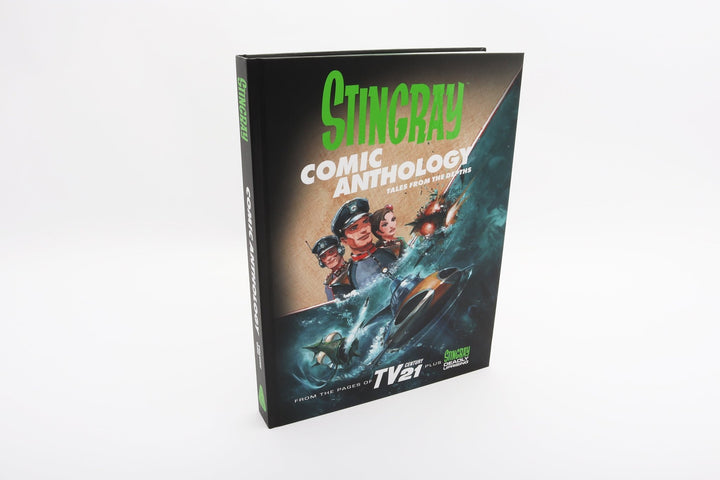
![Stingray Comic Anthology Volume Two – Battle Lines [HARDCOVER] - The Gerry Anderson Store](http://gerryanderson.com/cdn/shop/files/stingray-comic-anthology-volume-two-battle-lines-hardcover-107681.jpg?v=1738856151&width=720)
![Stingray W.A.S.P. Technical Operations Manual Standard Edition [HARDCOVER] - The Gerry Anderson Store](http://gerryanderson.com/cdn/shop/files/stingray-wasp-technical-operations-manual-standard-edition-hardcover-112278.jpg?v=1749664163&width=720)
![Stingray WASP Technical Operations Manual Special Limited Edition [HARDCOVER BOOK] - The Gerry Anderson Store](http://gerryanderson.com/cdn/shop/files/stingray-wasp-technical-operations-manual-special-limited-edition-hardcover-book-991914.jpg?v=1749657538&width=720)
![Stingray: The Titanican Stratagem – Signed Limited Edition [HARDCOVER NOVEL] - The Gerry Anderson Store](http://gerryanderson.com/cdn/shop/files/stingray-the-titanican-stratagem-signed-limited-edition-hardcover-novel-129251.jpg?v=1740558711&width=720)




